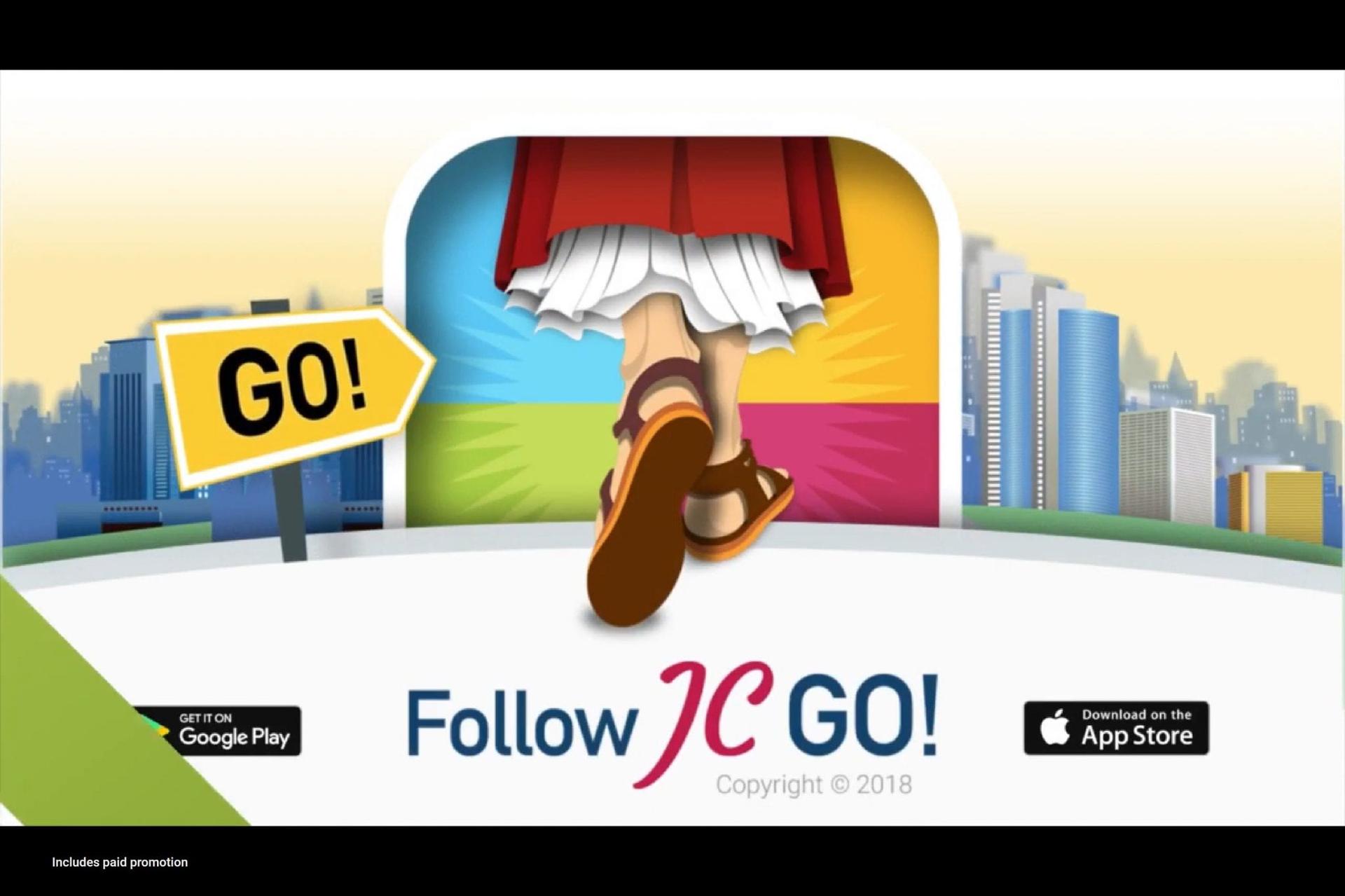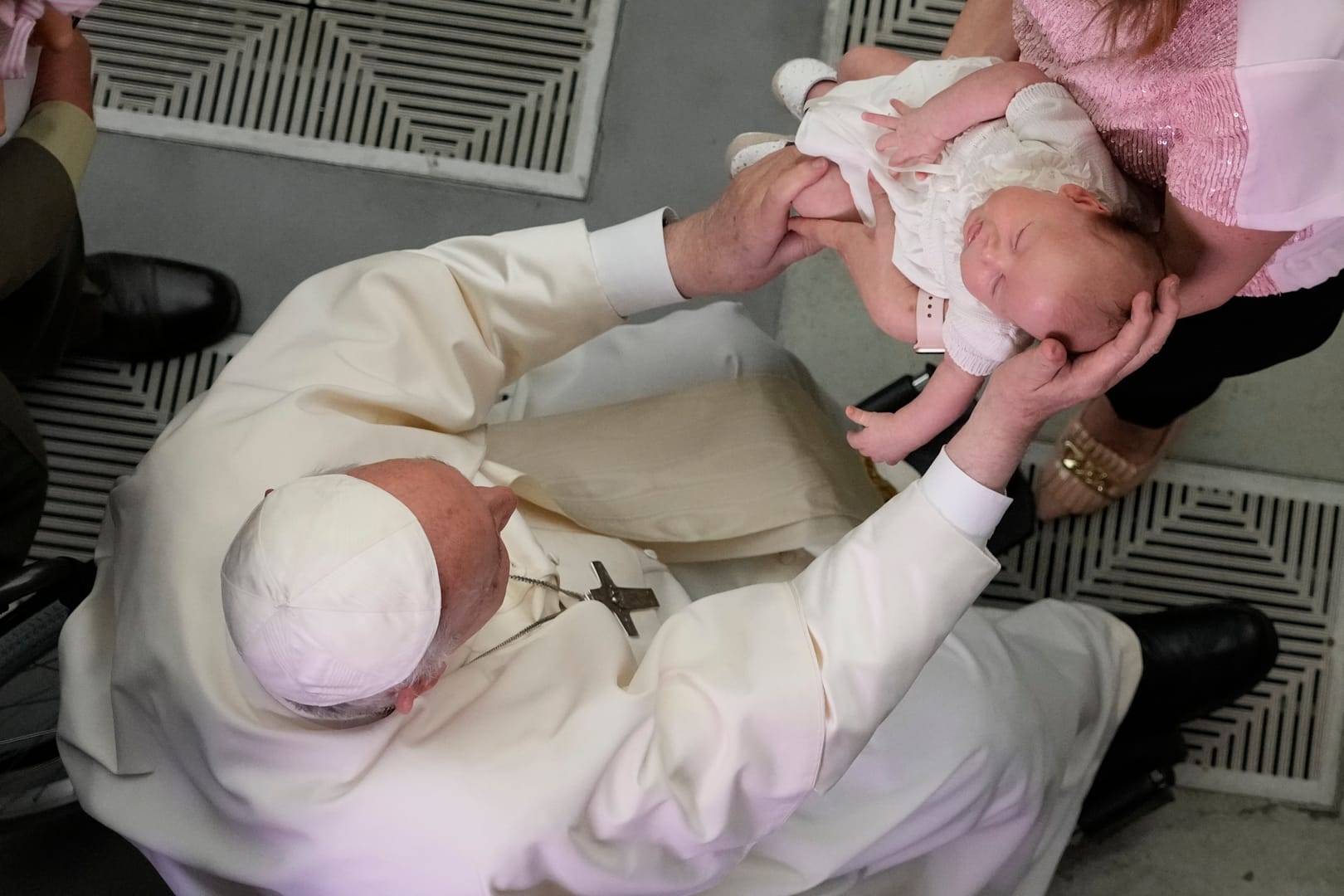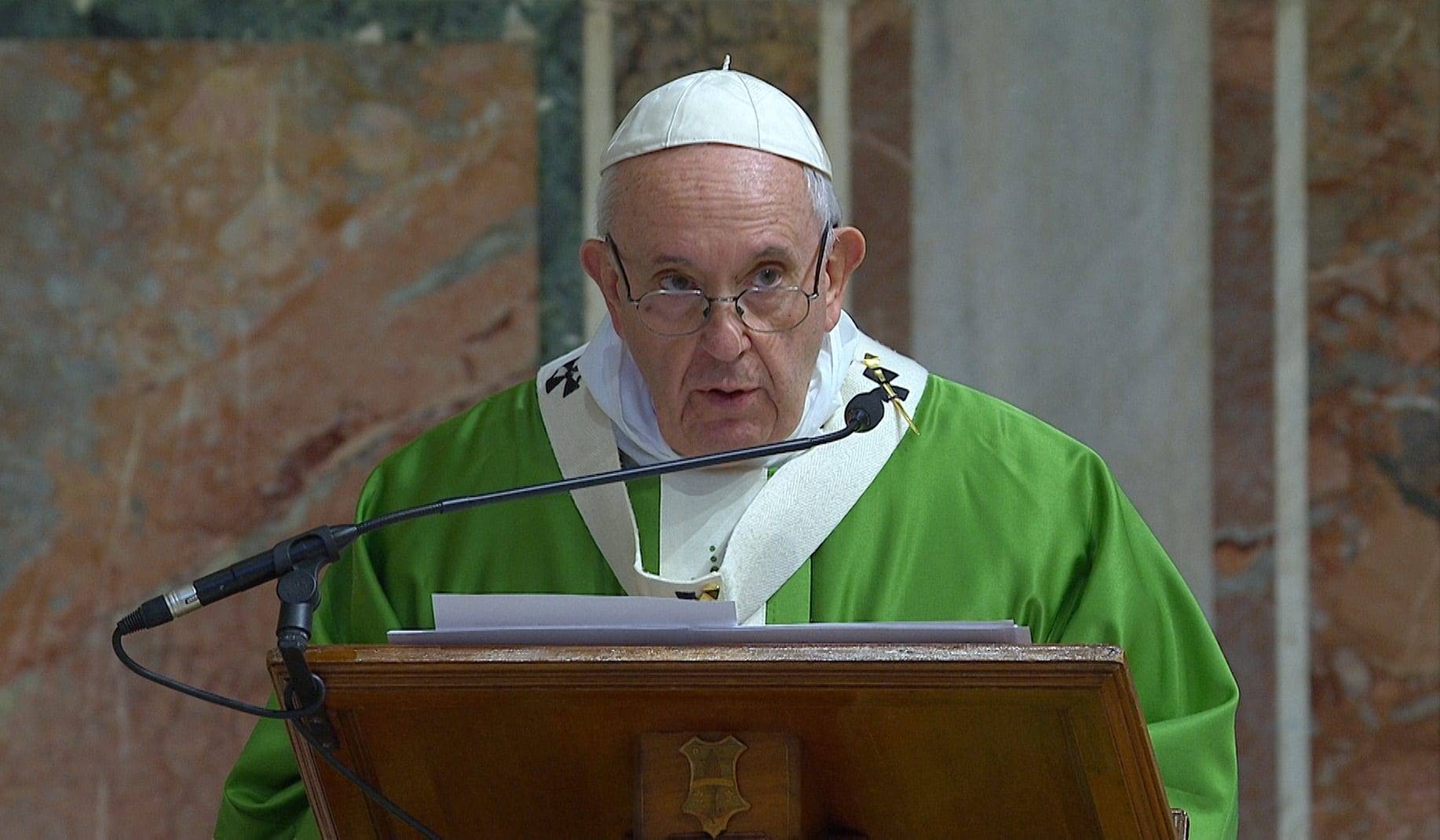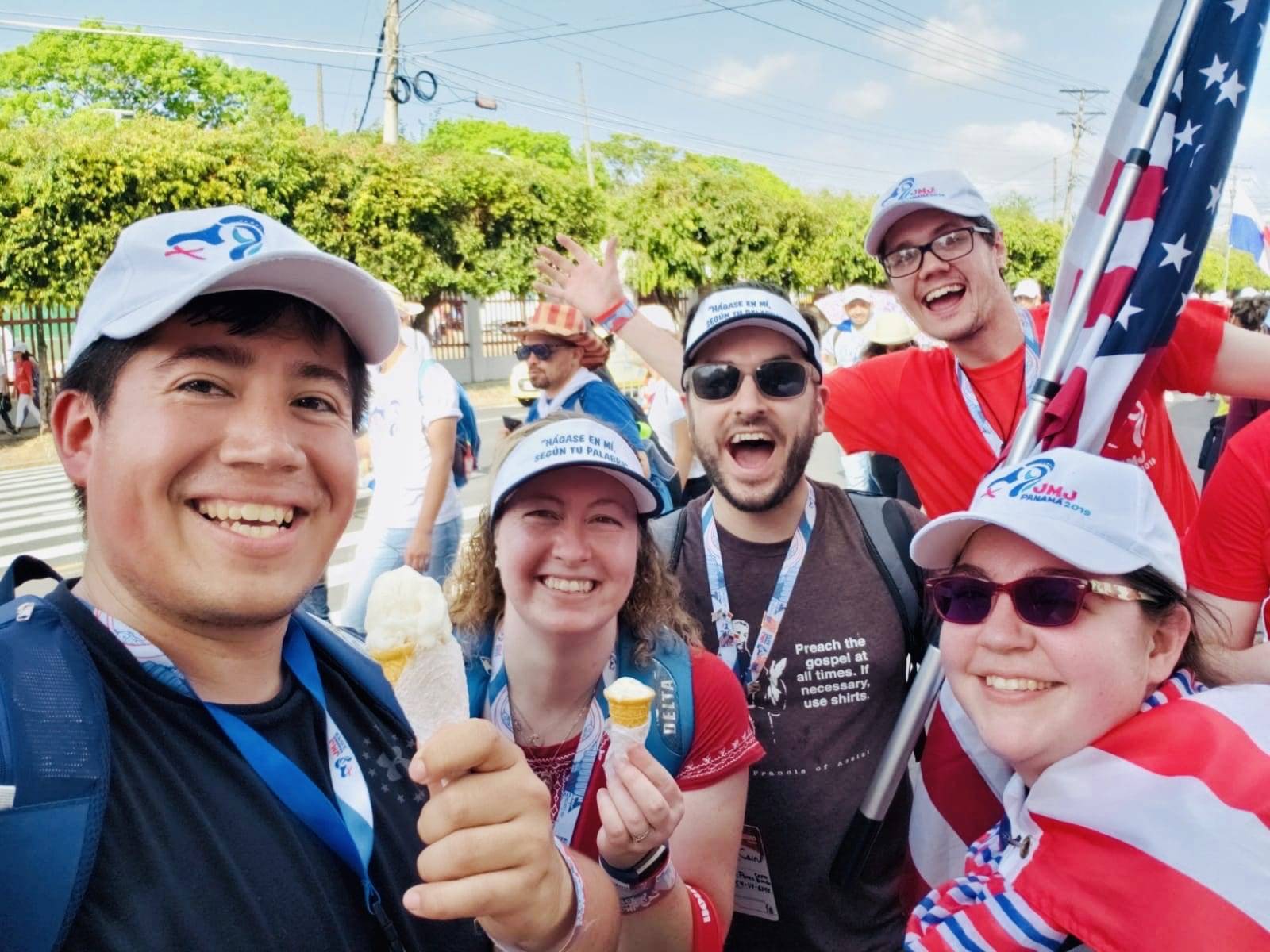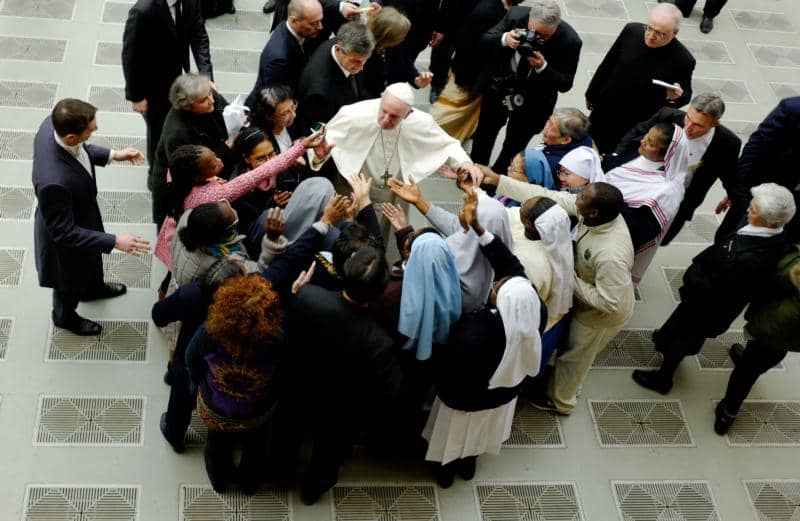ROME — Instead of looking for Pikachu and the rest of the Pokemon characters, a new free app allows young people, and those not so young, to roam the streets seeking saints, Marian devotions and biblical figures, and then interact with them in a game aimed at not only teaching young people about their faith, but also leading them to live the works of mercy.
Called “Follow JC Go!” (“Follow Jesus Christ Go!”), the app was launched in Spanish on Wednesday and will be available in English, Italian and Portuguese in upcoming weeks.
The app comes with a papal blessing, as Pope Francis was introduced to the game on Tuesday and reportedly commended it, saying that young people participating in an Oct. 3-28 meeting of bishops have been speaking about technology and how to better use it as an evangelization tool.
The game was developed by the Foundation Ramon Pane, dedicated to the promotion of new evangelization, and it’s inspired by Pokemon Go, which has had great success in recent years using geolocation technology.
The app is available for Android and IOS devices, and it’s free.
Among other things, players will look for saints, Marian devotions and biblical figures in a virtual way, answering questions to have the characters they meet join their team, and also collecting things they need for their “virtual survival,” including water, food, but also spirituality. The spiritual payoff will come in the non-virtual world, with the app letting users know they’re near a church and that it’d be a good time to say a prayer.
The app development cost of $500,000, was financed through sponsors and private donors. It was presented in Rome by creators as a tool in preparation for the upcoming World Youth Day that will take place in Panama Jan. 22-27.
However, it can be used by anyone anywhere in the world, regardless of their intentions to participate in this itinerant Catholic event that was last held in Poland in 2016.
“Never has the Church had a project like this … this is the Catholic app with the most advanced technology there is,” said Argentinian Ricardo Grzona, executive director of the Foudnation Ramon Pane.
In total, 43 designers, theologians, Bible experts, Church historians and engineers dedicated some 32,000 hours since August 2016 in producing the app.
Honduran Cardinal Óscar Andrés Rodríguez Maradiaga, president of the Foundation Ramon Pane, was supposed to be at the presentation, but a last-minute appointment, presumably related to the Synod of Bishops he’s participating in, kept him from attending.
However, he sent a video message in which he said: “At the synod we speak a lot about young people and technology, a more modern language. What young people want is to be active in taking the Gospel also to technology and have fun, learn and be evangelized through these channels.”
According to Grzona, the app also comes with the support of the archbishop of Panama City, which will host the event, José Domingo Ulloa. It was Ulloa, the Argentine said, who wanted to make sure that technology is very much a part of WYD Panama.
“Everything today, language and relations, among young people, go through smartphones,” Grzona said. “We wanted to be there and propose to them an educational videogame, that is religious and interactive, and with which they can form evangelization teams.”
He gave the example of a player “finding” Moses, who will tell the player that, for him to become part of the team, the gamer has to answer the following question correctly: “Was it me who said: ‘My God, my God, why have your forsaken me?”
(Hint, the answer is no. According to the Gospels of Matthew and Mark, those words were said by Jesus right before his death, when he was on the Cross.)
In addition, the city-like map will have billboards like those often seen in the streets, but instead of having advertisements, they will have short videos with biblical explanations. When the players pass through a hospital in real life, the app will suggest they stop and say a prayer for the sick as a work of mercy.
Talking about introducing the app to the pope, Grzona said, “You know Francis is not a very technological person, but he was in awe, he understood the idea, what we were trying to do: combine technology with evangelization.”
